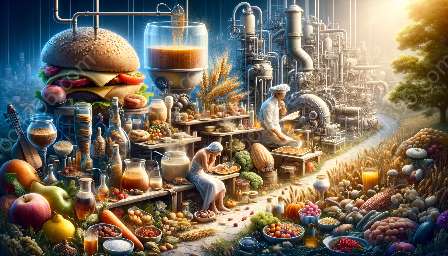Humans have a long and fascinating history of shaping the world around them to create food, technology, and culture. This topic cluster explores the introduction of agriculture, domestication of plants and animals, the evolution of food technology and innovation, and the rich history of food culture.
The Introduction of Agriculture
Agriculture marks a crucial turning point in human history. Before the advent of agriculture, our ancestors lived as hunter-gatherers, relying on wild plants and animals for sustenance. The transition to agriculture began around 10,000 years ago in various regions of the world, leading to the domestication of plants and animals, and the rise of settled societies.
Domestication of Plants and Animals
The domestication of plants and animals was a revolutionary development that allowed humans to harness the power of nature for their benefit. Through selective breeding, early agriculturalists transformed wild species into domesticated crops and livestock. This process led to increased food production, the development of specialized farming techniques, and the establishment of permanent settlements.
Evolution of Food Technology and Innovation
As agriculture advanced, so did food technology and innovation. Early agricultural societies developed various food preservation techniques, such as drying, fermenting, and pickling, to ensure a stable food supply throughout the year. The invention of pottery and storage containers facilitated the storage and transportation of food, while the discovery of fire and cooking techniques transformed raw ingredients into delicious and nutritious meals.
Food Culture and History
Food is deeply intertwined with human culture and history. Throughout the ages, different cultures have developed unique cuisines, culinary traditions, and dietary customs. The exchange of foodstuffs, spices, and culinary knowledge through trade and exploration has enriched food cultures around the world. Additionally, the study of food history provides valuable insights into the social, economic, and environmental factors that have shaped human societies.

